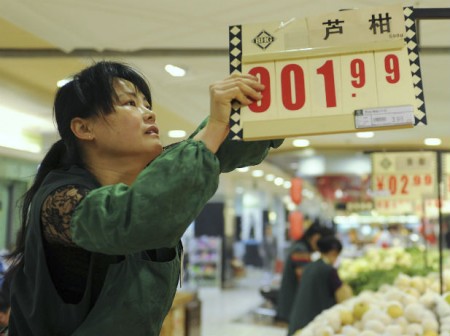By Isobel Coleman for Council on Foreign Relations.

In this week’s installment of Missing Pieces, Charles Landow discusses stories on China and Africa, as well as a report on U.S. international engagement. Enjoy the reading.
- China’s Challenges: Last week brought troubling economic news for China, with disappointing indicators on everything from import growth to retail sales to real estate investment. TheFinancial Times, the Guardian, MarketWatch, andReuters have reported on the numbers. The data indicating a slowdown come in the wake of major political scandals. The Bo Xilai saga (analyzed in a recent ForeignAffairs.com piece) continues to simmer and the Chen Guangcheng case (recounted in a Washington Post article by CFR’s Jerome Cohen) has shone a harsh light on human rights. With all these headwinds, a New York Times piece says that “triumphalism” over China’s economic and political model seems “at best, premature, and perhaps seriously misguided.” In a post on Asia Unbound, CFR’s Elizabeth Economy reviews China’s exhaustive efforts to control public debate. The authorities, she concludes, “are like the little Dutch boy with his finger in the dyke.”
- Africa’s Mixed Picture: African economic fortunes seem to be improving. A Guardianblog post chronicles growing investment and prosperity, and an IMF magazine article last December profiles the continent’s middle class. But a report last week from the Africa Progress Panel, a group of dignitaries, writes that “there is another side to the balance sheet.” Even with “buoyant growth,” it notes, “almost half of Africans still live on less than $1.25 a day.” With this inequality as its premise, the report examines the forces shaping Africa’s development, from urbanization and Chinese investment to democracy, resource wealth, and education. In its conclusion, the panel echoes the famous Wall Street disclaimer, saying that positive recent trends are no guarantee of broad future prosperity. To improve the prospects, it urges “Africa’s leaders to put equity and the development of more inclusive societies at the heart of their planning for the future.”
- Foreign Aid Reform: A new report from the Center for American Progress and the Center for Global Development proposes four ideas for U.S. foreign assistance and international engagement in an age of austerity. First, it suggests making economic and security assistance more selective by reducing the number of recipient states. Second, it calls for countries receiving PEPFAR help for HIV/AIDS to take on more of the costs. Third, it urges reforms to U.S. food aid, including dropping the preference for transport on U.S.-flagged ships and buying food in or near the countries that need help. Finally, it calls for an International Affairs Realignment Commission, modeled on the commission that identifies military bases for closing. This would examine the full sweep of practices, regulations, and institutional arrangements for international affairs and propose reforms.
- South Sudan’s Dire Straits: As I noted on the blog in February, South Sudan has ceased its oil production in a dispute with Sudan over transit fees for the south’s crude, which is exported through Sudanese pipes. A leaked World Bank paper reported on by the Sudan Tribune takes a dire view of the shutdown’s economic consequences for South Sudan. With oil normally funding 98 percent of government spending, the paper forecasts that the halt will decimate GDP, spark “massive depreciation” of the currency and an “exponential rise in inflation,” and exhaust government reserves by July. Likely effects include a jump in poverty from 51 percent this year to 83 percent in 2013 and a doubling of under-5 child mortality from 10 to 20 percent. The Los Angeles Times offers further analysis.
Isobel Coleman is a Senior Fellow for U.S. Foreign Policy at the Council on Foreign Relations and author of Paradise Beneath Her Feet. She blogs at Democracy in Development.
For further information on the topic, please view the following publications from our partners:
Communist Party of China @ 90: An analysis, from the Institute of Peace and Conflict Studies.
Regional Integration and Human Development: A Pathway for Africa, from the United Nationals Development Programme (UNDP).
The Future of US Aid Reform: Rhetoric, Reality, and Recommendations, from the Center for Global Development.
For more information on issues and events that shape our world please visit the ISN’s Security Watch and Editorial Plan.

